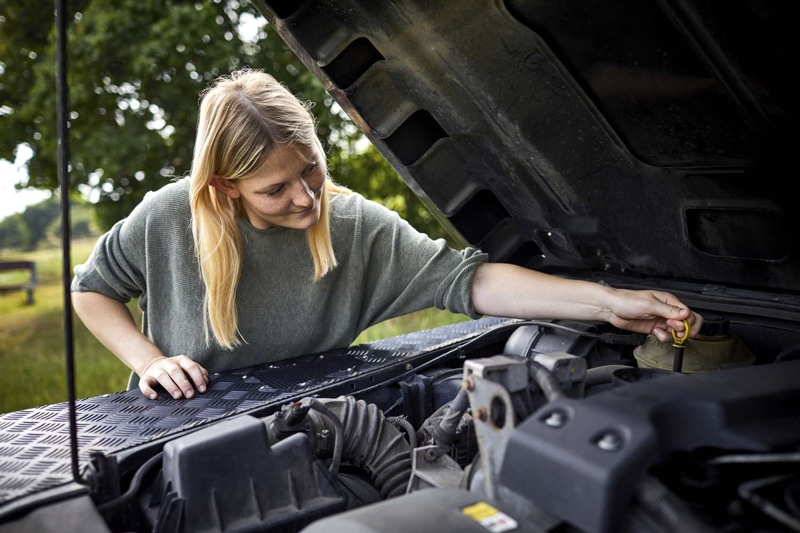
Having a well-maintained car is crucial for ensuring the safety and longevity of your vehicle. Regular car maintenance not only improves the overall performance but also enhances the safety of your family during road trips. In this article,Treemusketeers will discuss essential car maintenance tips that will keep your car running smoothly, reduce the risk of breakdowns, and promote a healthy car family.
Importance of Car Maintenance
Maintaining your car regularly is essential to ensure optimal performance, efficiency, and safety. By following a proper car maintenance routine, you can identify and address potential issues before they turn into major problems. Regular maintenance also helps in maintaining the resale value of your car.
Regular Oil Changes
One of the most important car maintenance tasks is changing the engine oil regularly. Engine oil lubricates the engine, reduces friction, and prevents wear and tear. Follow the manufacturer’s recommendations for oil change intervals, and ensure you use the right type and grade of oil for your car.
Tire Maintenance and Rotation
Proper tire maintenance is vital for a safe and comfortable driving experience. Regularly check the tire pressure and inflate them to the recommended levels. Inspect the tires for signs of wear and tear, and replace them when necessary. Additionally, rotating the tires at regular intervals ensures even wear and prolongs their lifespan.
Checking and Replacing Filters
Air filters and fuel filters play a crucial role in maintaining the performance of your car’s engine. Regularly inspect these filters and replace them as recommended by the manufacturer. Clean filters improve fuel efficiency and protect the engine from contaminants.
Battery Maintenance
A healthy battery is essential for starting your car and powering electrical components. Check the battery terminals for corrosion and clean them if necessary. Inspect the battery’s overall condition and replace it if it shows signs of weakness or is nearing the end of its lifespan.
Brake Inspection and Maintenance
Properly functioning brakes are vital for your safety and the safety of your family. Regularly inspect the brake pads, rotors, and brake fluid levels. If you notice any signs of brake wear, such as squeaking or grinding noises, have them inspected and replaced by a professional mechanic.
Fluid Checks and Top-ups
Various fluids, such as coolant, transmission fluid, power steering fluid, and windshield washer fluid, play important roles in your car’s operation. Regularly check these fluids and top them up as needed. Consult your car’s owner manual for the appropriate fluid types and levels.
Engine Belt Inspection and Replacement
The engine belts in your car, such as the serpentine belt, drive important components like the alternator, water pump, and power steering pump. Inspect these belts for signs of wear, cracking, or fraying, and replace them as necessary. A broken belt can lead to severe engine damage and leave you stranded.
Proper Wheel Alignment
Wheel alignment affects the handling and tire wear of your car. Ensure your wheels are properly aligned by having them checked regularly. Misaligned wheels can cause uneven tire wear, decreased fuel efficiency, and compromised safety.
Checking Lights and Signals
Regularly inspect all lights and signals on your car, including headlights, taillights, brake lights, and turn signals. Replace any burnt-out bulbs immediately to ensure visibility and communicate your intentions to other drivers.
Cleaning and Protecting the Exterior
Regularly wash and wax your car to protect the paint from damage and keep it looking new. Remove dirt, grime, and road salt that can cause corrosion. Additionally, consider applying a paint sealant or ceramic coating for added protection.
Interior Maintenance and Cleaning
A clean and well-maintained interior not only enhances the driving experience but also promotes a healthy environment for your family. Regularly vacuum the carpets and seats, clean the dashboard and console, and use appropriate products to condition and protect the upholstery.
Regular Check-ups by a Professional Mechanic
While you can perform many car maintenance tasks yourself, it’s important to have your car inspected by a professional mechanic at regular intervals. They have the expertise and equipment to identify potential issues that may go unnoticed during DIY maintenance.
Roadside Emergency Preparedness
No matter how well you maintain your car, breakdowns can still occur. Be prepared for roadside emergencies by keeping a spare tire, jack, jumper cables, and emergency supplies in your car. Familiarize yourself with basic troubleshooting techniques and know how to change a tire.
Conclusion
By following these essential car maintenance tips, you can ensure a healthy car family and enjoy worry-free driving. Regular maintenance not only prolongs the life of your car but also improves its performance, fuel efficiency, and safety. Take the time to care for your vehicle, and it will reward you with many years of reliable service.
FAQs
- How often should I change my car’s engine oil?
- It is generally recommended to change the engine oil every 3,000 to 5,000 miles or as specified in your car’s owner manual.
- When should I replace my car’s tires?
- Replace your car’s tires when the tread depth reaches 2/32 of an inch or if you notice signs of excessive wear or damage.
- How often should I have my brakes inspected?
- Regular brake inspections are recommended every 12,000 to 15,000 miles or as advised by your car’s manufacturer.
- Can I wash my car with dish soap?
- It is not recommended to use dish soap to wash your car as it can strip away the protective wax and damage the paint. Use a car-specific wash and wax product instead.
- What should I do if my car battery dies?
- If your car battery dies, you can jump-start it using jumper cables and a working vehicle. Alternatively, call for roadside assistance or a professional mechanic for assistance.
